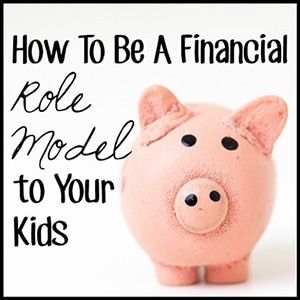

A guest post from sexual health educator Amy Lang
No matter how open, informed, or confident you may be, talking to kids about sex can be tough! It can feel awkward and uncomfortable for everyone to have these conversations, but don’t let these feelings deter you–because there is good news!
Over and over again, when teens are surveyed, they say the people who have the most influence over their sexual decision-making are their parents and primary caregivers!
We are powerful, we have influence, and they want and need to hear from us.
Sex education at school is in no way enough. Their peers, pornography, and media are the last places kids should go to for information, so that means it’s up to YOU.
Just like every other parent, you are probably pretty clueless as to how and when these conversations should start, let alone what kids should know at each age and stage. But like every other hard part of parenting, this is something you can learn to do with confidence.
These conversations are about physical and emotional health and safety and preparing kids for one of the biggest and most important parts of life. The sooner you start (age five isn’t too young) the better, because they’ll come to expect these conversations and learn you are their go-to birds and bees source.
Another important fact is that kids who have open communication with their parents about sexuality are offered some protection from sexual abuse.
You can do this! You probably want your kids to make better decisions than you did about this part of life and to be more prepared for it as well. Using your teen-confirmed power and influence is the way to make this happen.
Here are 10 tips to help you with the birds and bees talks:
- The very first thing you need to do is clarify your values about sexuality, love, and relationships. Start the conversations early, and remember, it’s NEVER too late to start. Always say “this is not for kids, and for when you’re older” when you talk about sexual behaviors.
- “When they’re ready to know about sex, they’ll ask,” is not a thing. When you wait for them to ask, you make them responsible for their own sex education.
- These are a series of short and sweet conversations throughout childhood and adolescence; it’s not one big “talk” that traumatizes you both.
- Talk to your kids in the car, text them, email them, or write them notes. You don’t have to do this face-to-face all the time.
- Look for teachable moments – while watching movies or TV, or even from observing their friends’ lives.
- Get age-appropriate books for them to read with or without you. Include books about puberty and adolescence.
- Acknowledge their discomfort and your own, and then dive in. They need this information to make great choices.
- Make sure they know they are in charge of their bodies and have the right to say NO if anyone touches them in a way that feels uncomfortable.
- Sexuality is core to nearly every aspect of healthy development, and your kids deserve to be as smart about this as they are about what they learn at school. Hardly anyone uses what they learned in calculus in their everyday life.
- Sex is about responsibility and joy; pleasure and trust; health and safety; communication and information.*
There is more information to help you become your kids’ go-to birds and bees expert on my website, podcast and in my Birds & Bees Solutions center, where you’ll find 95% of what you need to rock the talks. You’ve got this!
*Author Peggy Orenstein said “responsibility and joy; pleasure and trust.” I added “health and safety; communication and information,” because they are integral to comprehensive sexuality education.
About the Author
Amy Lang, MA teaches parents of all beliefs how to talk to kids about sex through consultations, workshops, videos, teleclasses, and talks. She is a three-time Mom’s Choice Award® winner for her products and books. A sexual health educator for over 20 years, Amy also has an MA in Applied Behavioral Science.
Follow Amy on Twitter @BirdsAndBees, where she Tweets funny things kids say about sex ,or be her Fan on Facebook!




 Growing up my mom used to put some of our holiday gifts on layaway at the local TJ Maxx and Sears. For her, it was a great way to avoid debt and hide gifts from my sticky little hands. For me, it taught the importance of delaying gratification and how we really don’t own anything until we pay for it in full. My mom probably didn’t realize she was educating me on so much with just a short trip to the mall. But her actions spoke volumes.
Growing up my mom used to put some of our holiday gifts on layaway at the local TJ Maxx and Sears. For her, it was a great way to avoid debt and hide gifts from my sticky little hands. For me, it taught the importance of delaying gratification and how we really don’t own anything until we pay for it in full. My mom probably didn’t realize she was educating me on so much with just a short trip to the mall. But her actions spoke volumes.



